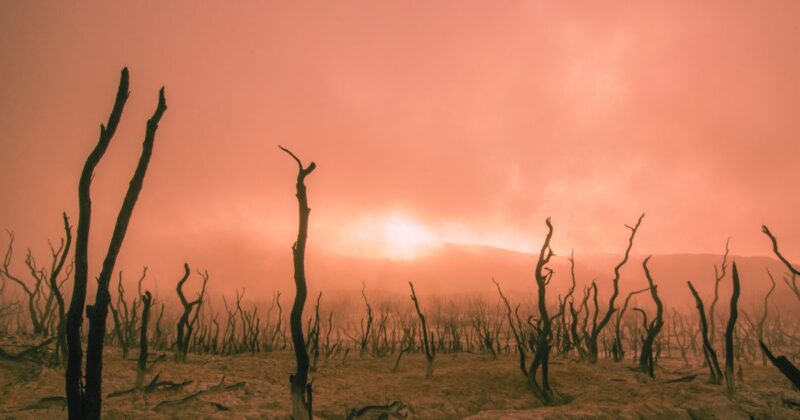Hi! It’s konkaz (@konkazuk).
In this article, I will be introducing ‘Climate Justice‘, written by Mary Robinson, who served as the 7th President of the Republic of Ireland and also as the United Nations High Commissioner for Human Rights.
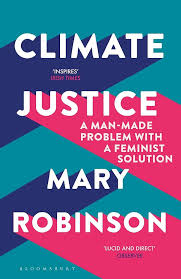
Climate change is happening because of the comfortable lifestyles we enjoy in developed countries, yet many people are still unaware of this fact.
Even if people know about it, they’re so used to a life of comfort that the issue no longer feels personal, so they don’t feel any real sense of danger or responsibility.
The purpose of this book is to make us realise how our way of living is causing serious harm to those in developing countries who are least responsible for climate change, through the personal stories of those directly affected.
It’s essential reading for anyone living in the developed world.
Who is Mary Robinson?
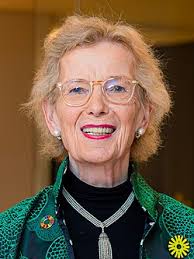
Let’s start by introducing the author.
Mary Robinson was Ireland’s 7th President and later took on the role of UN High Commissioner for Human Rights.
More than just a politician or diplomat, she stands out as a pioneering leader who bridges human rights and climate change, and as a member of The Elders—the group founded by Nelson Mandela—she has dedicated herself to promoting the vital concept of ‘climate justice’, the very theme of this book.
The Meaning of Climate Justice
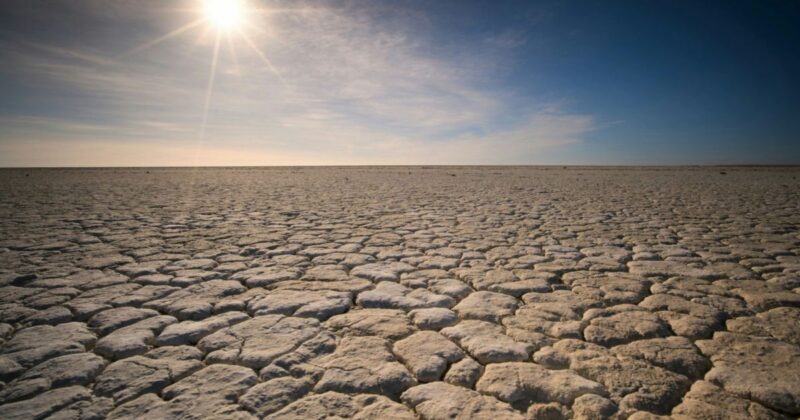
The idea of “climate justice” is that…
While developing countries contribute very little to global greenhouse gas emissions, they are the ones facing the most severe and even life-threatening consequences of climate change.
It’s about correcting this unfair reality!
Since 1850, more than half of all CO₂ emissions have come from the United States and the European Union, while Africa as a whole has contributed only a small percentage.
People who live modestly without air conditioning, cars, or much electricity—relying on traditional wisdom and maintaining a “give and take” relationship with nature—are now losing their homes and harvests to droughts and floods, facing life-threatening risks, all because developed countries have continued to emit greenhouse gases for the sake of their own convenience.
Meanwhile, those of us living in developed countries—who have consumed vast resources with a “take, take, take” mentality—are protected by systems such as flood defenses and insurance schemes, which allow us to shield ourselves from much of the damage.
In other words, those who have contributed the least to the problem suffer the most, while those most responsible are the ones best protected.
This injustice is at the very heart of climate justice, and it is the point that Mary Robinson is urging people everywhere to understand.
By refusing to face the true causes of climate change, we often see protecting the lives of people in developing countries as a matter of “charity”.
But it is not charity—it is about taking responsibility for what we ourselves have done.
Voices from the Ground
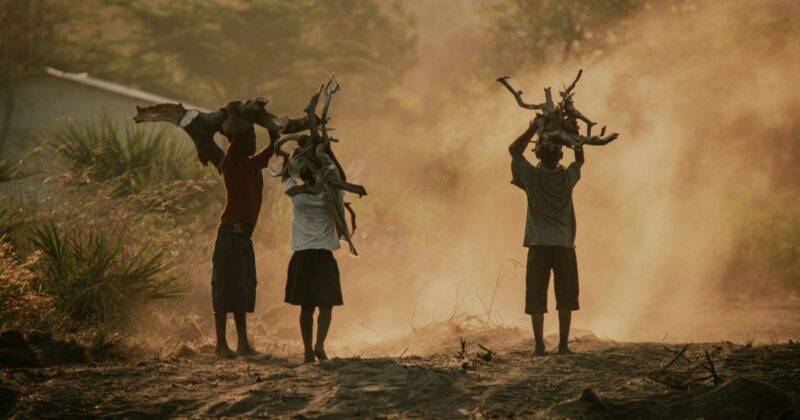
Here, I’ve chosen three voices that resonated with me most deeply and briefly highlighted their messages.
🔹Constance (Uganda)
In regions where basic infrastructure is lacking, women already spend much of their time fetching water, working in the fields, and taking care of household tasks, leaving little room for rest. Climate change has made their lives even harder.
Here’s how Constance from Uganda describes it…
In the past, the rains used to come at the same time every year, and we never had to worry about food. But now, water has become scarce. We must fetch it at midnight and wait in long queues at the well.
Crops are often stolen, domestic violence has risen, and women are forced to go further and further in search of water and firewood.
Eventually, droughts and floods destroy everything we grow, leaving our families on the brink of starvation.
It was only when I attended an Oxfam meeting that I first learned the term ‘climate change’. I felt deep sorrow when I realised that the excessive emissions from rich countries were disrupting our seasons.
We are all human beings, and we should be friends. Yet while they live in comfort, we are left to suffer and even die from droughts and floods.
Why is this happening? And will they truly take steps to reduce their emissions?
🔹Patricia (Alaska)
As global temperatures rise, the ice in Alaska is melting. Once the ground is exposed, it absorbs heat, which causes even more ice to melt.
Eighty-five percent of Alaskans live along the coast, where the land beneath them is eroding and collapsing. Entire communities are facing destruction right before their eyes.
Patricia Cochran, an Alaska Native who has worked for more than thirty years with communities throughout Alaska and the Arctic to confront climate-related challenges, describes the situation as follows…
Historically, Alaska experienced long and severe winters, with only a brief summer season.
Now, winters come late, springs arrive early, and when I return home, the endless ice fields of my childhood have vanished—what I see instead is the shimmer of open water.
The decline of ice has brought widespread erosion and flooding, and the permafrost is breaking down.
Permafrost—the frozen ground that has supported Alaska’s land for thousands of years—is now melting. As it thaws, Native homes sink and eventually collapse into the sea.
With the loss of sea ice, the natural barrier that once protected us from storms is gone, leaving bare soil exposed and vulnerable to relentless coastal erosion.
The melting ice also makes traditional fishing and hunting nearly impossible. Today, we face the grave reality of ‘losing our homeland’.
🔹Anote Tong, Former President (Kiribati)
The Republic of Kiribati is made up of small islands in the Pacific, standing just two meters above the sea.
Rising sea levels, driven by global warming, pose an existential threat to the nation, with the very real possibility that the entire country could be submerged and effectively disappear.
Former President Anote Tong has spoken candidly about this looming crisis…
I have repeatedly appealed at international conferences, saying, “If nothing changes, our nation will sink into the sea”. But my voice was ignored, drowned out by powerful countries that place their own interests first.
It feels as though the leaders of wealthy nations—who built their economies on fossil fuels—have effectively signed a death warrant for Kiribati.
A crushing sense of helplessness overwhelms me, leaving me with unbearable grief.
If our islands go under, we will be forced to scatter as “climate refugees” in other countries.
To lose our country is to lose far more than land: it is to lose our culture, our traditions, and the identity we have inherited from our ancestors.
A Message for Those Living in Developed Countries
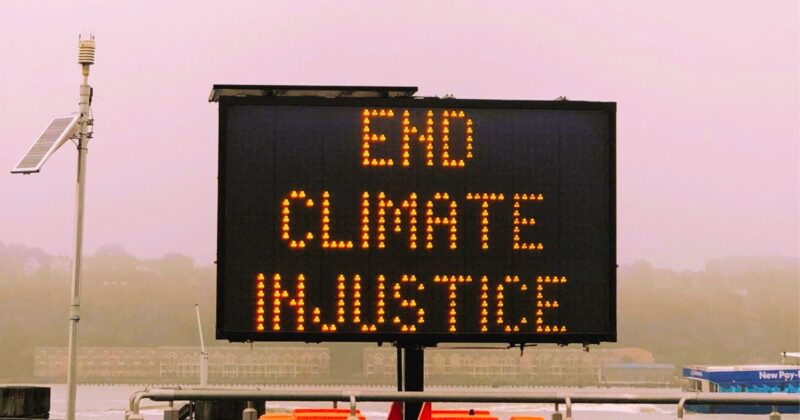
Reading 『Climate Justice』 convinced me that, in the end, people who are geographically fortunate or who happen to possess wealth and power often become increasingly blind to the world around them as they pursue their own interests.
I came to think that, over time, people become indifferent to those around them. Since what they receive feels as if it simply appears on its own, they lose the ability to recognise the hardship and suffering of others, until ultimately everything is treated as if it has nothing to do with them.
For example, even if you live in a developed country and belong to a lower-than-average economic class, feeling disadvantaged within your own society, your basic living conditions are still secured, and you have access to clean drinking water.
Meanwhile, abroad, there are people suffering from drought, forced to drink the same muddy water as their livestock. Yet, because you see the world only through the lens of your own country, it’s hard to picture what that really means.
But the idea that “I’ll be okay as long as I look after myself” simply doesn’t work.
The truth is, we all live together on the same planet.
And in the end, none of us can run away from what’s coming.
When it comes to climate change, it’s not if people will suffer from floods or hunger—it’s just a matter of whether it hits the poorer first and the richer later.
Without “give and take”, disaster is inevitable.
If we’ve taken too much, we must give back!
Even a small step counts—let’s start taking action today.
Bye now,
konkzaz
*You can read this blog post in Japanese from the link below.
👉 気候正義とは?メアリー・ロビンソンが語る人権×環境の本当の意味

